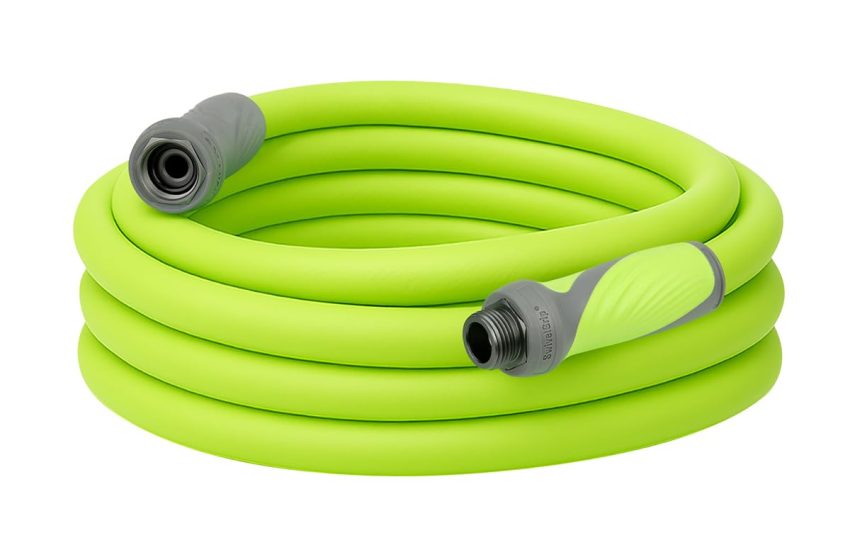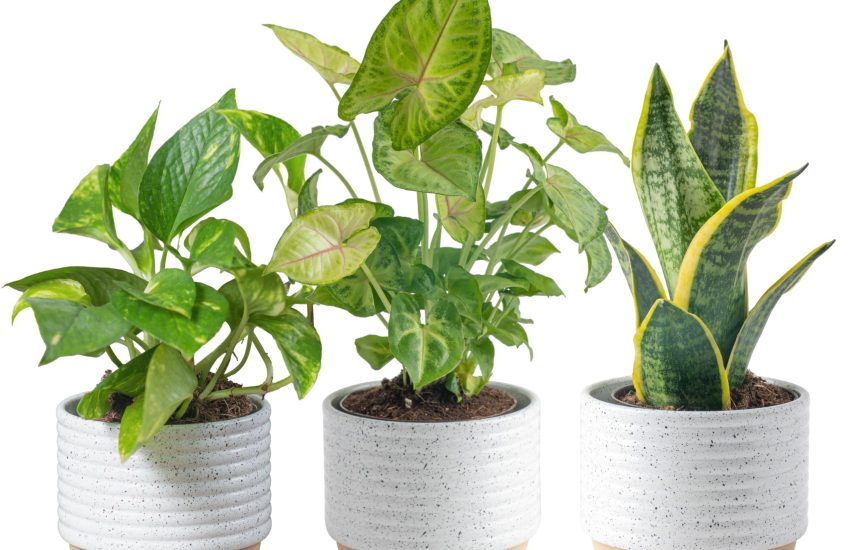5 Best Soil Test Kits for Precise PH Readings: Essential Tools for Garden Success
We independently select all products and services. If you click through links we provide, Plant Native may earn a commission with no extra cost to you.
Soil testing is a crucial step for successful gardening and agriculture. It provides valuable information about soil composition, nutrient levels, and pH. Among these factors, soil pH is particularly important as it affects nutrient availability and plant growth.
Soil pH test kits are essential tools for measuring the acidity or alkalinity of soil. These kits come in various forms, from simple color-changing strips to more advanced digital meters. They allow users to quickly and easily determine if their soil is too acidic, neutral, or too alkaline for their desired plants.
When choosing a soil pH test kit, accuracy and ease of use are key factors to consider. We evaluated numerous soil test kits, focusing on their precision, reliability, and user-friendliness. Our goal was to identify the top 5 soil test kits that provide the most accurate pH readings for home gardeners and professional landscapers alike.
Best Soil Test Kits for Precise PH Readings
We’ve researched and tested numerous soil test kits to bring you our top picks for accurate pH measurements. These kits will help you determine the acidity or alkalinity of your soil, enabling you to make informed decisions about plant selection and soil amendments for optimal garden health.
Garden Tutor Soil pH Test Kit
This comprehensive soil pH test kit offers quick and accurate results, making it an excellent choice for gardeners seeking precise pH readings.
Pros
- Fast results in 60 seconds
- Includes 100 test strips
- Detailed instructions and application charts
Cons
- Requires manual color comparison
- May be challenging to distinguish similar pH levels
- More time-consuming than probe-style testers
We found the Garden Tutor Soil pH Test Kit to be a reliable tool for measuring soil acidity and alkalinity. The kit comes with 100 test strips, allowing for multiple tests across different areas of your garden.
We appreciated the quick 60-second result time, which enabled us to efficiently assess various soil samples.
The included full-color pH testing handbook proved invaluable during our testing process. It provided clear instructions and helpful lime and sulfur application charts, guiding us on how to adjust soil pH levels for optimal plant growth. This feature sets the Garden Tutor kit apart from many competitors.
While using the test strips required more effort than probe-style testers, we noticed improved accuracy in our readings. The 3-pad design helped us confidently determine pH levels across a range of 3.5 to 9.
We successfully tested various soil types, including sandy, silty, and clay-rich samples from our garden beds and potted plants.
TryOpen 7-in-1 Soil Tester
We recommend this comprehensive soil testing kit for gardeners seeking an all-in-one solution to monitor multiple soil and environmental factors.
Pros
- Measures 7 key soil and environmental parameters
- Easy-to-read LCD display
- Metal probes for faster, more accurate readings
Cons
- May be overwhelming for absolute beginners
- Not suitable for sandy or loose soils
- Probe requires careful handling to avoid damage
We recently put the TryOpen 7-in-1 Soil Tester through its paces in our garden, and we’re impressed by its versatility. This device combines a traditional soil meter with an LCD display, allowing us to monitor soil moisture, pH, fertility, and sunlight intensity, as well as soil and air temperature and humidity.
The metal probes are a standout feature, providing quicker and more precise readings compared to plastic alternatives we’ve used in the past. We found the moisture and pH measurements particularly helpful for adjusting our watering and fertilizing routines. The sunlight intensity feature also proved useful for determining optimal plant placement in our garden.
While the multitude of functions might seem daunting at first, we found the interface intuitive after a brief learning curve. The LCD display is clear and easy to read, even in bright sunlight. We appreciate the comprehensive approach this tool takes to plant care, giving us a more holistic view of our garden’s health.
It’s worth noting that the tester requires some care in use. We learned to insert only two-thirds of the probe into the soil and to clean it thoroughly after each use. Also, it’s not suitable for very hard or loose soils, so keep that in mind depending on your garden’s composition.
BOSIKE Soil pH Strips
We recommend these pH test strips for gardeners seeking an affordable and user-friendly soil testing solution.
Pros
- Easy-to-use testing process
- Suitable for various plant types
- Cost-effective gardening tool
Cons
- Requires manual color comparison
- 30-minute wait time for results
- Limited to pH testing only
We recently tried out the BOSIKE Soil pH Testing Kit and found it to be a valuable tool for both novice and experienced gardeners. The kit comes with 150 test strips, providing ample opportunities to check soil pH levels throughout the growing season.
The testing process is straightforward. We mixed equal parts soil and water, let it sit for 30 minutes, then dipped a strip into the mixture. After a quick 60-second wait, we compared the strip’s color to the chart on the bottle.
The pH range of 3.5-9 covers most gardening needs, allowing us to accurately assess various soil types.
We appreciated the versatility of these strips. We used them for indoor potted plants, outdoor vegetable gardens, and even our lawn. This flexibility makes the kit a practical choice for diverse gardening projects.
While the manual color comparison isn’t as precise as electronic meters, we found the results reliable enough for general soil management.
PooTe 4-in-1 Soil Tester
We recommend this comprehensive soil testing kit for gardeners seeking an affordable and user-friendly solution for monitoring essential soil parameters.
Pros
- Tests for pH, nitrogen, phosphorus, and potassium
- Includes 40 tests (10 for each parameter)
- Easy-to-follow instructions with color chart
Cons
- Requires careful sample preparation
- Results may vary based on user technique
- Limited to basic soil nutrients
The PooTe 4-in-1 Soil Tester impressed us with its versatility. We found it helpful for checking our garden’s pH levels and nutrient content without the need for expensive lab tests.
During our trials, we appreciated the clear instructions and color-coded chart. It made interpreting results straightforward, even for beginners. The kit’s compact size allowed us to carry it around different parts of our garden easily.
We noticed the test accuracy improved with practice. Proper soil sample preparation is crucial for reliable results. The kit’s ability to perform multiple tests on different soil parameters provides a good overview of soil health, helping us make informed decisions about fertilization and plant selection.
Luster Leaf Rapitest Soil Kit
We recommend this soil test kit for gardeners seeking an affordable, user-friendly option for basic soil analysis.
Pros
- Easy-to-use color comparison system
- Includes 40 tests for pH, N, P, and K
- Comprehensive plant guide included
Cons
- Limited number of tests per kit
- Refills can be difficult to find
- Color matching may be subjective
We recently tried out the Luster Leaf Rapitest Soil Test Kit in our garden, and it provided valuable insights into our soil’s composition. The kit comes with everything needed to perform 40 tests, split evenly between pH, nitrogen, phosphorus, and potassium measurements.
We found the color comparator system straightforward to use, offering a clear visual reference for interpreting results.
The instructions were clear and concise, making it easy for us to collect soil samples and prepare them for testing. We appreciated the included guide, which lists pH preferences for over 450 plants. This feature proved particularly helpful when planning our vegetable garden layout.
While we found the Rapitest kit to be a useful tool for home gardeners, it’s worth noting that the limited number of tests per kit means you may need to purchase refills for ongoing soil monitoring. Additionally, the color matching process can be somewhat subjective, which might lead to slight variations in readings between users. Despite these minor drawbacks, we believe this kit offers good value for those looking to improve their garden’s health through basic soil analysis.
Buying Guide
When selecting a soil test kit for accurate pH readings, there are several key factors to consider:
Accuracy
We recommend choosing a kit with at least +/- 0.5 pH accuracy. Digital meters tend to offer more precise results than chemical test strips.
Ease of Use
Look for kits with clear instructions and quick testing processes. Some only require inserting a probe, while others involve mixing soil samples with solutions.
Durability
For frequent outdoor use, water-resistant or waterproof models are ideal. Sturdy construction helps withstand accidental drops.
Calibration
Kits that allow for easy calibration help maintain accuracy over time. Some come with calibration solutions included.
Additional Features
Many soil testers measure more than just pH. Consider if you need:
- Moisture levels
- Temperature
- Nutrient content (NPK)
Price vs. Quality
Higher-priced kits often provide greater accuracy and durability. However, mid-range options can still offer good performance for most home gardeners.
Battery Life
For digital meters, long battery life is convenient. Some models use standard batteries, while others have rechargeable options.
By weighing these factors, we can choose a soil test kit that meets our specific needs. It also provides reliable pH readings for optimal plant care.







